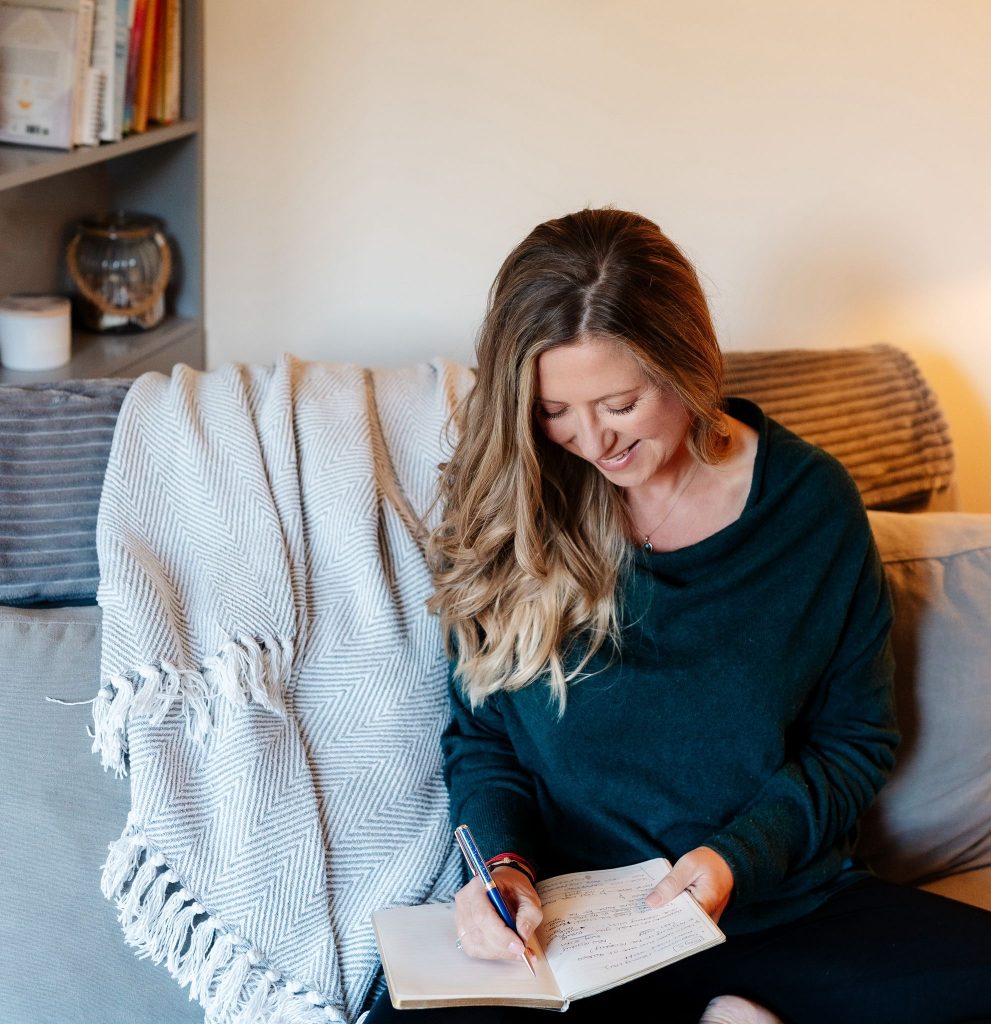
What is a reflective practice?
Reflective practice is a deliberate and structured process of thinking about one’s actions and experiences, with the aim of learning from them involving self-examination to gain insights into one’s behaviour and to improve future practices. This process can include reflecting on actions as they happen (reflection-in-action) and reflecting after the event (reflection-on-action), facilitating continuous professional and personal development.
“Reflective practice is the ability to reflect on one’s own actions so as to engage in a process of continuous learning”
– Donald Schön most influential thinker on Reflective Learning Theory
Reflective practice was something which developed in disciplines such as teaching, medicine and social work as a way to learn from real life experiences. People in these areas would think about encounters with their students, patients or clients, how these worked and what lessons they could take away to improve for the next situation.
Harnessing reflection as a tool to learn and grow across every facet of our lives has clear benefits. It helps cement memory, explores possibilities and creates space for conscious learning. You can use it when studying, when preparing for a presentation at work or when considering how to approach a new or unfamiliar situation in your personal life, such as exploring a new interest. It can be highly beneficial when building new habits and examining existing ones that may be counter productive to what you really want.
The benefits of cultivating reflective practice
There are many benefits associated with reflective practices. It facilitates a deeper understanding of yourself including exploring your values, strengths, weaknesses and motivations. This awareness is crucial in allowing you to focus on past decisions and experiences leading to improved decision-making skills. Whether a situation goes well, or doesn’t quite hit the mark the way you intended, taking time to reflect will guide you as to how you can improve the next time.
Awareness and understanding of your emotions and the emotions of others is often referred to as Emotional Intelligence (EI). Emotional Intelligence is the ability to recognise, understand, and manage our own emotions, as well as to recognise, understand, and influence the emotions of others. It involves deep self awareness and tuning into the emotional states of others. It is also the ability to apply emotions towards thinking and problem solving, and the regulation of emotions to enhance emotional and intellectual growth. And although it may not be immediately apparent, self-reflection is an excellent tool to help you hone your emotional intelligence and emotional agility. Consciously tuning into other people can help you communicate better by teaching you how different people may respond, leading you to be able to better adapt and tailor your approach in future interactions and is a key component of building trust.
Engaging in reflective mindful practices have been linked to a reduction in stress levels and improved overall well being. The NHS in the UK have noted that mindfulness-based treatments have been shown to reduce anxiety and depression and there’s also evidence that mindfulness can lower blood pressure and improve sleep. It may even help people cope with pain. Whilst this has not been proven for everyone, engaging in reflective practices have been linked to reduced stress levels and improved overall wellbeing.
Research has shown that when you take even a brief amount of time to reflect, you can benefit from higher performance outcomes and increased confidence. The CIPD in the UK have documented a 2014 study by Giada Di Stefano and colleagues where they studied whether cultivating reflection can improve job performance and satisfaction. The researchers focused on employees at a customer service call centre who were receiving on-the-job training. Some employees were instructed to spend the last 15 minutes of each training day completing reflection activities, while others continued with normal training activities. At the end of the study, individuals who engaged in reflection scored on average 23% higher in the end-of-training assessment test. One month later, they were 19% more likely to achieve top customer service feedback compared with their colleagues.
Once you’ve adopted the concept of self-reflection, you are embracing the power of continuous learning and adaptability. Reflection fosters a growth mindset and a commitment to lifelong learning, enhancing adaptability and greater resilience in the face of challenges.
The typical obstacles to getting started
You may know some of this already so while there are many clear benefits to cultivating a reflective practice, there are multiple factors and common obstacles which can hinder us from getting started. These include lack of time, competing demands or other responsibilities, to fear of facing uncomfortable truths or a sense of perceived failure.
It can also help to hurdle potential obstacles by having a clear understanding of why a reflective practice could help you by creating a compelling reason and strong personal motivation.
Be aware that there is a risk in reflecting in isolation without opportunities for discussion or feedback with other people (hello echo chamber) which may hamper the breadth or depth of your reflections. It’s important to try and engage with peers, mentors or support networks to enhance the reflective process especially in environments with organisational or cultural barriers and resistance to introspection.
It’s crucial to understand that developing any type of new practice requires consistency. If reflection is only done sporadically, its impact may be limited. Establishing a routine and making reflection a habit can contribute to its effectiveness.
Cultivating a growth mindset, which embraces learning and development, is crucial for effective reflection.
Remember that overcoming barriers often involves a combination of self-awareness, commitment, and a willingness to prioritise a new technique in the face of competing demands.
Suggestions to overcoming the barriers to developing a reflective practice and top tips
The following guidance is distilled from my coaching experiences and may help you develop your own practice.
1.Start with a clear and compelling intention of personal growth
This could simply be a reframe of the mindset or lens you want to approach the day, testing out a new framework for improved decision-making, mindful approach such as getting curious when you feel a sense of judgement (towards yourself or others) that helps you assess your impact v’s intention, taking time to eat in a more mindful way, or testing out different communication skills or approaches.
Top Tip: Successful experimenters understand that “failure” in an experiment is not a reflection of their personal abilities but a step forward in the complex process of discovery. Treating your intention or working towards a goal like an experiment or giving yourself permission to play can be helpful, fun and motivating.
2.Establish a habit or routine that works for you
Encourage regular reflection by integrating it into your daily life. This could be moment by moment, meeting by meeting, transitions throughout the day, beginning of the day, end of the day, or weekly, depending on your preferences and schedules.
Top Tip:
You are as unique as your practice. So you get to decide what works for you. Bolting on to already established habits can be helpful once you decide you commit fully to it.
3.Choose your method:
This is where you need to think about your preference and what you would find most helpful. Different people respond to different methods. Perhaps simply sitting for a few moments quietly reflecting will work for you, or journaling, practising meditation, mindful activities like doodling or drawing, or perhaps exploring through discussions with a friend or peer.
Top Tip:
It might even be a mix of a few methods to suit your mood or environment. The only thing that matters is to find what works for you.
4. Invite open-ended questions
Encourage the exploration of thoughts and feelings by considering open-ended questions. This helps in deepening reflection and gaining insights into experiences rather than closed questions which result in a yes or no answer! Also noticing if you feel anything change or shift in your body whilst reflecting.
Top Tip:
Select a couple of key questions. A few examples to share: What was predictable? What was surprising? What was most memorable? What felt uncomfortable/challenging? What felt comfortable/effortless? Where is this felt in my body? What’s possible for next time?
5. Be kind to yourself and foster self compassion
Self-compassion is essential during reflection. We’re all doing the best we can with the tools and experience we have. Every day is an opportunity to learn more, so approach your thoughts and actions with curiosity and understanding rather than criticism and judgement. Self-compassion encourages a balanced approach to self-assessment, promoting emotional well-being without dismissing personal responsibility, enabling constructive learning and growth from experiences rather than dwelling in self-criticism or denial.
Top Tips:
Self compassion doesn’t mean you are letting yourself off the hook! Self-compassion involves treating oneself with kindness and understanding in the face of mistakes or failures, recognising that imperfection is part of the human experience. It’s different from letting oneself off the hook, which implies avoiding accountability or not engaging with the consequences of one’s actions.
6. Inject fresh thinking by seeking input or inviting feedback
For some people reflecting on their own is preferred as they start, however as you become more practised seeking input or feedback from others can be useful. External perspectives can provide valuable insights and will almost inevitably lead to different angles to consider.
Top Tip:
Seeking feedback from a diverse range of people will have a transformative effect on your reflective practice. It may also uncover some ‘blind spots’. If you are stuck on something, a good question to ask of someone is, what am I not seeing here that might be valuable?
7. Capture your thoughts, insights and discoveries
Whether through writing, recording, or any other means that works for you, this documentation can serve as a tangible record of your growth over time and keep you focussed on cementing your intention or indeed goal.
Top Tip:
Perseverance and repetition of practice will support habit formation, become second nature and your authentic story of growth. At this point you might then no longer need to keep a physical record.

8. Connect reflection to deepen intention through action
Set yourself actionable goals based on insights gained during the reflective process. Start small, build up as you gain confidence and keep yourself on track with a supportive community around you.
Top Tip:
See it as continuing to adapt and refine through experimentation
Ultimately, the effectiveness of a reflective practice is tied to its integration into your lifestyle. It’s better to start with a manageable time commitment, or as an addition onto an already existing practice. Gradually increase as required because the key to reaping long term benefits is to make reflection a consistent and meaningful part of your routine no matter how or where you are in the world.
Reflective practices are most powerful when personalised, meaning it’s essential to choose approaches that resonate with you. Experiment with different techniques and time frames to find a reflective practice that aligns with your preferences, energetic flow and lifestyle.
Happy exploring!
Joanne x
